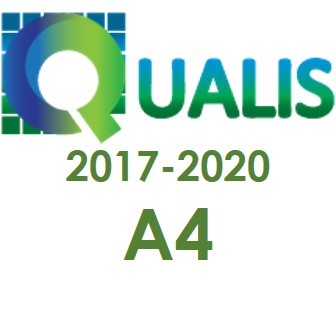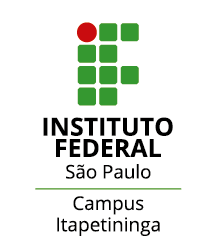Revisão da literatura da cadeia de suprimentos a partir das consequências da Covid-19
uma agenda de pesquisa com projetos de rede
Palavras-chave:
Covid-19. Cadeia de Suprimentos. Projeto de Rede, Revisão de literatura, bibliometria.Resumo
Os efeitos da pandemia da covid-19 nas cadeias de suprimentos nacionais foram destacados em diversos estudos. Parte deles utilizam a técnica de Projetos de Rede (PR), que é útil em cadeia de suprimentos para auxiliar a tomada de decisão. Este trabalho teve como objetivo realizar uma análise bibliométrica e de conteúdo na principal coleção do Web of Science que aborda PR no contexto da pandemia da covid-19. Para isso, buscamos os seguintes termos: “Network design”, “Supply chain” e “Covid*” (com asterisco para buscar todas as variações da palavra) em todos os tópicos. Como resultado, identificou-se as características dos trabalhos que investigaram o efeito da covid-19 usando projetos de rede, o que permite destacar as oportunidades de pesquisa neste campo.
Downloads
Referências
ASADPOUR, M.; BOYER, O.; TAVAKKOLI-MOGHADDAM, R. A blood supply chain network with backup facilities considering blood groups and expiration date: A real-world application. International Journal of Engineering, v. 34, n. 1, 2021. DOI: 10.5829/ije.2021.34.02b.19
ALIKHANI, R.; TORABI, S. A.; ALTAY, N. Retail supply chain network design with concurrent resilience capabilities. International Journal of Production Economics, vol. 234, p. 108042, 2021. DOI: https://doi.org/10.1016/j.ijpe.2021.108042.
ASSUNÇÃO, Marcus Vinicius Dantas et al. Resilience of the Brazilian supply chains due to the impacts of covid-19. Holos, v. 5, p. 1-20, 2020. DOI: https://doi.org/10.15628/holos.2020.10802
BAGHALIAN, A.; REZAPOUR, S.; FARAHANI, R. Z. Robust supply chain network design with service level against disruptions and demand uncertainties: A real-life case. European Journal of Operational Research, v. 227, n. 1, p. 199–215, 2013. DOI: 10.5829/ije.2021.34.02b.19
BARBERIA, L.G., CLARO, M.L., SEELAENDER, I., ROSA, C., PEREIRA, S. Confronting the covid-19 pandemic: Brazilian federal and subnational-government responses, technical report on social distancing stringency (SDS) 1.0. Tech. rep, 2020. DOI: 10.17605/OSF.IO/WD4ET
BARBOSA, Marcelo Werneck; SOUSA, Paulo Renato; OLIVEIRA, Leise Kelli. The Effects of Barriers and Freight Vehicle Restrictions on Logistics Costs: A Comparison before and during the covid-19 Pandemic in Brazil. Sustainability, v. 14, n. 14, p. 8650, 2022. DOI: https://doi.org/10.3390/su14148650
BUDAK, A.; USTUNDAG, A. Reverse logistics optimisation for waste collection and disposal in health institutions: the case of Turkey. International Journal of Logistics Research and Applications, v. 20, n. 4, p. 322–341, 2017. DOI: 10.1080/13675567.2016.1234595
BÜYÜKTAHTAKIN, İ. E.; BORDES, E. DES-; KIBIŞ, E. Y. A new epidemics–logistics model: Insights into controlling the Ebola virus disease in West Africa. European Journal of Operational Research, v. 265, n. 3, p. 1046–1063, 2018. DOI: 10.1016/j.ejor.2017.08.037
CARVALHO, M. M.; FLEURY, A.; LOPES, A. P. An overview of the literature on technology roadmapping (TRM): Contributions and trends. Technological Forecasting and Social Change, v. 80, n. 7, p. 1418–1437, 2013. DOI: https://doi.org/10.1016/j.techfore.2012.11.008
CHAI, K.-H.; XIAO, X. Understanding design research: A bibliometric analysis of Design Studies (1996–2010). Design Studies, v. 33, n. 1, p. 24–43, 2012. DOI: https://doi.org/10.1016/j.destud.2011.06.004
DAS, K.; ANNAND, A.; RAM, M. A Global Supply Network Design Model: A Resilient Management Approach. International Journal of Mathematical, Engineering and Management Sciences, v. 6, n. 2, p. 660–676, 2021. DOI: 10.33889/ijmems.2021.6.2.041
DASAKLIS, T. K.; PAPPIS, C. P.; RACHANIOTIS, N. P. Epidemics control and logistics operations: A review. International Journal of Production Economics, v. 139, n. 2, p. 393–410, 2012. DOI: https://doi.org/10.1016/j. ijpe.2012.05.023
DASKIN, M. S.; SNYDER, L. V.; BERGER, R. T. Facility Location in Supply Chain Design. In: Logistics Systems: Design and Optimization. New York: Springer-Verlag, p. 39–65, 2005. DOI: http://dx.doi.org/10.1007/0-387-24977-x_2
DE SOUZA, W. M.; BUSS, L. F.; CANDIDO, D. da S.; CARRERA, J.-P.; LI, S.; ZAREBSKI, A. E.; PEREIRA, R. H. M.; PRETE, C. A., Jr; DE SOUZA-SANTOS, A. A.; PARAG, K. V.; BELOTTI, M. C. T. D.; VINCENTI-GONZALEZ, M. F.; MESSINA, J.; DA SILVA SALES, F. C.; ANDRADE, P. dos S.; NASCIMENTO, V. H.; GHILARDI, F.; ABADE, L.; GUTIERREZ, B.; … FARIA, N. R. Epidemiological and clinical characteristics of the covid-19 epidemic in Brazil. Nature Human Behaviour, vol. 4, no. 8, p. 856–865, 2020. DOI: https://doi.org/10.1038/s41562-020-0928-4.
DOLGUI, A.; IVANOV, D.; SOKOLOV, B. Reconfigurable supply chain: the X-network. International Journal of Production Research, vol. 58, no. 13, p. 4138–4163, 2020. DOI: https://doi.org/10.1080/00207543.2020.1774679.
EDMONDSON, A.C., MCMANUS, S.E. Methodological fit in management field research. Acad. Manag. Rev. 32, 1155–1179. 2007. DOI: https://doi.org/10.5465/AMR.2007.26586086
FATHOLLAHI-FARD, A. M.; AHMADI, A.; AL-E-HASHEM, S. M. J. M. Sustainable closed-loop supply chain network for an integrated water supply and wastewater collection system under uncertainty. Journal of Environmental Management, vol. 275, p. 111277, 2020. DOI: https://doi.org/10.1016/j.jenvman.2020.111277.
FLICK, U. Qualidade na pesquisa qualitativa: Coleção Pesquisa Qualitativa. [S. l.]: Bookman Editora, 2009.
GEPHART, R. P., Jr. Qualitative Research and the Academy of Management Journal. Academy of Management Journal, vol. 47, no. 4, p. 454–462, 2004. DOI: https://doi.org/10.5465/amj.2004.14438580.
GOLAN, M. S.; JERNEGAN, L. H.; LINKOV, I. Trends and applications of resilience analytics in supply chain modeling: systematic literature review in the context of the covid-19 pandemic. Environment Systems and Decisions, vol. 40, no. 2, p. 222–243, 2020. DOI: https://doi.org/10.1007/s10669-020-09777-w.
GOODARZIAN, F.; TALEIZADEH, A. A.; GHASEMI, P.; ABRAHAM, A. An integrated sustainable medical supply chain network during covid-19. Engineering Applications of Artificial Intelligence, vol. 100, p. 104188, 2021. DOI: https://doi.org/10.1016/j.engappai.2021.104188.
GOVINDAN, K.; FATTAHI, M.; KEYVANSHOKOOH, E. Supply chain network design under uncertainty: A comprehensive review and future research directions. European Journal of Operational Research, vol. 263, no. 1, p. 108–141, 2017. DOI: https://doi.org/10.1016/j.ejor.2017.04.009.
IKPAAHINDI, Linus. An overview of bibliometrics: its measurements, laws and their applications. Libri, v. 35, p. 163, 1985.
IVANOV, D. Predicting the impacts of epidemic outbreaks on global supply chains: A simulation-based analysis on the coronavirus outbreak (covid-19/SARS-CoV-2) case. Transportation Research Part E: Logistics and Transportation Review, vol. 136, p. 101922, 2020. DOI: https://doi.org/10.1016/j.tre.2020.101922.
KARGAR, S.; POURMEHDI, M.; PAYDAR, M. M. Reverse logistics network design for medical waste management in the epidemic outbreak of the novel coronavirus (covid-19). Science of The Total Environment, vol. 746, p. 141183, 2020. DOI: https://doi.org/10.1016/j.scitotenv.2020.141183.
LU, J.; DU PLESSIS, L.; LIU, Z.; HILL, V.; KANG, M.; LIN, H.; SUN, J.; FRANÇOIS, S.; KRAEMER, M. U. G.; FARIA, N. R.; MCCRONE, J. T.; PENG, J.; XIONG, Q.; YUAN, R.; ZENG, L.; ZHOU, P.; LIANG, C.; YI, L.; LIU, J.; … KE, C. Genomic Epidemiology of SARS-CoV-2 in Guangdong Province, China. Cell, vol. 181, no. 5, p. 997-1003.e9, 2020. DOI: https://doi.org/10.1016/j.cell.2020.04.023.
MANGIARACINA, R.; SONG, G.; PEREGO, A. Distribution network design: a literature review and a research agenda. International Journal of Physical Distribution & Logistics Management, vol. 45, no. 5, p. 506–531, 2015. DOI: https://doi.org/10.1108/ijpdlm-02-2014-0035.
MELO, M. T.; NICKEL, S.; SALDANHA-DA-GAMA, F. Facility location and supply chain management – A review. European Journal of Operational Research, vol. 196, no. 2, p. 401–412, 2009. DOI: https://doi.org/10.1016/j.ejor.2008.05.007.
MINISTÉRIO DA SAÚDE, BRASIL. 2020. Painel de política estadual e local covid-19. Disponível em: https://covid.saude.gov.br/ Acesso em: 12 dez 2020.
ORGANIZAÇÃO MUNDIAL DA SAÚDE. 2020. Comentários de abertura do Diretor-Geral da OMS no briefing para a mídia sobre covid-19-11 de março de 2020. Disponível em: https://www.who.int/dg/speeches/detail/who-director-general-s-opening-remarks-at-the- media-briefing-on-covid-19---11-march-2020 Acesso em: 12 dez 2020.
QUEIROZ, M. M.; IVANOV, D.; DOLGUI, A.; FOSSO WAMBA, S. Impacts of epidemic outbreaks on supply chains: mapping a research agenda amid the covid-19 pandemic through a structured literature review. Annals of Operations Research, vol. 319, no. 1, p. 1159–1196, 2020. DOI: https://doi.org/10.1007/s10479-020-03685-7.
ROWAN, N. J.; LAFFEY, J. G. Challenges and solutions for addressing critical shortage of supply chain for personal and protective equipment (PPE) arising from Coronavirus disease (covid19) pandemic – Case study from the Republic of Ireland. Science of The Total Environment, vol. 725, p. 138532, 2020. DOI: https://doi.org/10.1016/j.scitotenv.2020.138532.
SAMPIERI, R. H.; COLLADO, C. F.; LUCIO, P. B. Metodologia de pesquisa. 3a. ed. São Paulo: McGraw-Hill, p. 152-223, 2006.
SARKIS, J.; COHEN, M. J.; DEWICK, P.; SCHRÖDER, P. A brave new world: Lessons from the covid-19 pandemic for transitioning to sustainable supply and production. Resources, Conservation and Recycling, vol. 159, p. 104894, 2020. DOI: https://doi.org/10.1016/j.resconrec.2020.104894.
SCHNEIDER, S.; CASSOL, A.; LEONARDI, A.; MARINHO, M. de M. Os efeitos da pandemia da covid-19 sobre o agronegócio e a alimentação. Estudos Avançados, vol. 34, no. 100, p. 167–188, 2020. DOI: https://doi.org/10.1590/s0103-4014.2020.34100.011.
CHOPRA, Sunil; SODHI, ManMohan; LÜCKER, Florian. Achieving supply chain efficiency and resilience by using multi‐level commons. Decision Sciences, v. 52, n. 4, p. 817-832, 2021. DOI: https://doi.org/10.1111/deci.12526
SHADKAM, E. Cuckoo optimization algorithm in reverse logistics: A network design for covid-19 waste management. Waste Management & Research: The Journal for a Sustainable Circular Economy, vol. 40, no. 4, p. 458–469, 24, 2022. DOI: https://doi.org/10.1177/0734242x211003947.
SHAHED, K. S.; AZEEM, A.; ALI, S. M.; MOKTADIR, Md. A. A supply chain disruption risk mitigation model to manage covid-19 pandemic risk. Environmental Science and Pollution Research, p. 1-16. 2021. DOI: https://doi.org/10.1007/s11356-020-12289-4.
MAX SHEN, Z.-J. Integrated supply chain design models: a survey and future research directions. Journal of Industrial & Management Optimization, vol. 3, no. 1, p. 1–27, 2007. DOI: https://doi.org/10.3934/jimo.2007.3.1.
SILVA, R. R. Os efeitos da pandemia da covid-19 na cadeia de suprimentos: um estudo de caso do setor supermercadista brasileiro sob a perspectiva de uma rede varejista. 2020. Dissertação de Mestrado. Fundação Getulio Vargas, São Paulo, 2020.
SINGH, S.; KUMAR, R.; PANCHAL, R.; TIWARI, M. K. Impact of covid-19 on logistics systems and disruptions in food supply chain. International Journal of Production Research, vol. 59, no. 7, p. 1993–2008, 2020. DOI: https://doi.org/10.1080/00207543.2020.1792000.
SOENDERGAARD, Niels et al. Impactos da covid-19 no agronegócio e o papel do Brasil. Insper-Centro do Agronegócio Global. Texto para discussão, n. 2, 2020.
SUNDARAKANI, B.; PEREIRA, V.; ISHIZAKA, A. Robust facility location decisions for resilient sustainable supply chain performance in the face of disruptions. The International Journal of Logistics Management, vol. 32, no. 2, p. 357–385, 2020. DOI: https://doi.org/10.1108/ijlm-12-2019-0333.
TSAO, Y.-C.; THANH, V.-V.; LU, J.-C.; WEI, H.-H. A risk-sharing-based resilient renewable energy supply network model under the covid-19 pandemic. Sustainable Production and Consumption, vol. 25, p. 484–498, 2021. DOI: https://doi.org/10.1016/j.spc.2020.12.003.
YU, H.; SUN, X.; SOLVANG, W. D.; ZHAO, X. Reverse Logistics Network Design for Effective Management of Medical Waste in Epidemic Outbreak: Insights from the Coronavirus Disease 2019 (covid-19) in Wuhan (China). International journal of environmental research and public health, SSRN Electronic Journal 17(5), 1770. 2020. DOI: https://doi.org/10.2139/ssrn.3538063
ZAHEDI, A.; SALEHI-AMIRI, A.; SMITH, N. R.; HAJIAGHAEI-KESHTELI, M. Utilizing IoT to design a relief supply chain network for the SARS-COV-2 pandemic. Applied Soft Computing, vol. 104, p. 107210, 2021. DOI: https://doi.org/10.1016/j.asoc.2021.107210.
Arquivos adicionais
Publicado
Como Citar
Edição
Seção
Licença
Copyright (c) 2023 Revista Brasileira de Iniciação Científica

Este trabalho está licenciado sob uma licença Creative Commons Attribution-NonCommercial-ShareAlike 4.0 International License.




